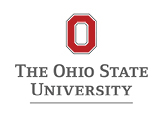

About
The biennial Light Materials Technology (LMT) conference is a significant industry event that was created in order to provide an opportunity to industry professionals and researchers to come together, share knowledge and engage in networking that enables the industry to continue to flourish and innovate.
LMT2023 gives industry leaders to share presentations regarding challenges and issues that the light metals industry currently faces and the way these challenges can be navigated using innovative solutions.
The event is curated by the leading Australian materials technology body, Materials Australia. Drawing upon their influence and stature in the industry, they are able to help create a world-class event that is of integral importance for anyone in the light materials sector.
The conference focuses on recent developments in the sciences and technologies associated with the development and manufacture of aluminium, magnesium and titanium alloys, and their translation into commercial products.
LMT2023 will feature presentations by industry experts as well as workshops that aim to help attendees increase their understanding and sharpen their skills, enabling them to then pass on their gained skills and knowledge to their colleagues and other professionals in the industry. Additionally, the event is purposefully designed to provide attendees with ample networking time in order to allow important knowledge transfer and the creation of valuable partnerships which can ultimately enrich the entire industry.
The LMT series is made possible by the organisational efforts of the members of the Global Light Metals Alliance, which includes eleven centres that specialise in light metals research. Previous conferences have been held in Australia (2003), Austria (2005), Canada (2007), Australia (2009), Germany (2011), UK (2013), South Africa (2015), USA (2017), and China (2019).
Scope of the Conference
The themes of LMT2023 are Net Shape Manufacturing, Solid State Transformations and Mechanical Performance, and Translation to Applications. These broad themes encapsulate more focused areas of research, including:
- Alloy development
- Solidification, casting and forming innovations
- Mechanical behaviour of light metal alloys
- Corrosion and surface modification
- Advanced characterisation techniques
- Joining
- Applications in bio-medical, automotive, aerospace, and energy industries
- Simulation and modelling
Proceedings
Full papers are not required. However, there are opportunities for publication of papers through the following avenues:
- Presentations on metal casting will be selected for publication as papers for a special issue of the International Journal of Metal Casting (https://www.tandfonline.com/loi/ycmr20).
- Papers on other light metal topics can be submitted to the Australian Journal of Mechanical Engineering (https://www.tandfonline.com/toc/tmec20/current).
-
Some presentations will be selected for short articles in Materials Australia Magazine.
















